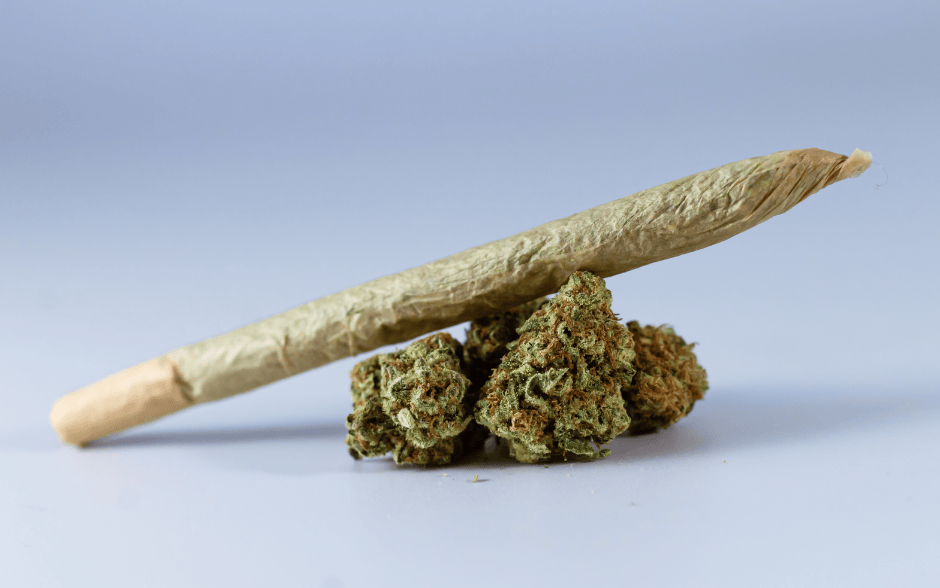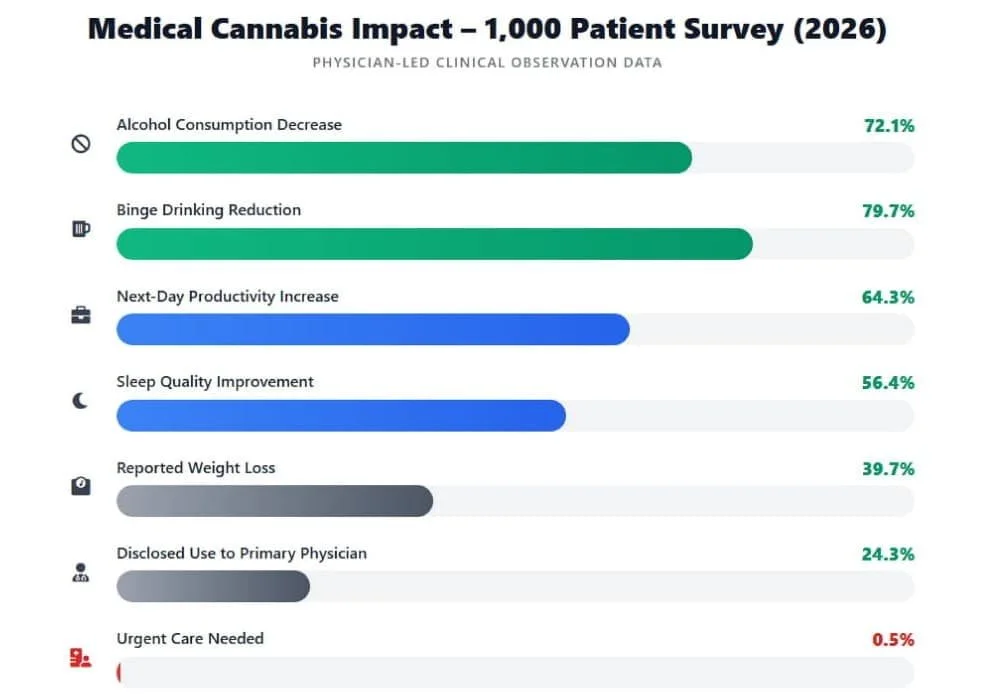Comprehensive Guide to Virginia Marijuana Laws (2025 Update)
Virginia has undergone a dramatic transformation in its approach to cannabis regulation. Once considered a controlled substance with severe criminal penalties, marijuana in Virginia is now legally accessible for specific medical and limited recreational purposes. This evolving legal landscape demands close attention, especially for residents, patients, employers, business owners, and legal professionals.
This guide provides a comprehensive overview of Virginia marijuana laws as of 2025, helping readers understand their rights, restrictions, and obligations. It includes possession limits, cultivation rules, product legality, medical certification steps, and key legal updates on Delta-8, Delta-9, CBD, employment, and firearm ownership. Whether you're considering a medical marijuana card, planning to grow at home, or simply want to stay within the law, this guide is your definitive resource.
Virginia Marijuana Laws Overview
Cannabis legislation in Virginia has shifted from strict prohibition to partial legalisation. As of 2025:
Medical cannabis is legal and accessible to patients with a valid written certification from a registered practitioner.
Recreational cannabis is legal in limited form: adults 21 and over can legally possess up to one ounce.
Commercial sales of recreational cannabis remain illegal pending future regulatory developments.
Virginia’s legal framework encompasses key areas such as possession thresholds, cultivation, dispensary access, employment rights, and law enforcement.
Is Cannabis Legal in Virginia?
Cannabis is partially legal in Virginia under two categories:
Medical Use: Fully legal for certified patients.
Recreational Use: Legal for personal possession but not yet for commercial sale.
Legal Milestones:
July 1, 2021: Adults 21+ allowed to possess up to 1 oz.
Public consumption: Prohibited.
Gifting: Legal between adults as long as no transaction is involved.
Driving under the influence: Treated with strict penalties similar to alcohol DUIs.
It is crucial to understand that federal law still classifies marijuana as a Schedule I drug. Thus, certain federal rules may override state protections in specific contexts.
Virginia Medical Marijuana Laws
The Virginia medical marijuana programme is among the most inclusive in the country. Overseen by the Virginia Cannabis Control Authority and initially regulated by the Board of Pharmacy, the system allows flexibility in patient qualifications and access. To begin the process, see the full Virginia medical card requirements and get your medical marijuana card certification online.
Qualifying Conditions
There is no fixed list of qualifying medical conditions. Instead, physicians have the discretion to recommend cannabis for any condition they believe will benefit from its use. Common conditions include:
Chronic pain
PTSD
Anxiety and depression
Cancer
Epilepsy
Multiple sclerosis
Insomnia
Nausea
Explore the full list of qualifying conditions that may be eligible for certification.
Patient Rights and Responsibilities
Certified patients are legally protected for possession and use within prescribed limits.
Consumption is banned in public places, schools, and on federal property.
Caregivers may also be certified to assist patients with the purchase and administration.
Virginia Laws and Penalties Possession Limits for Cannabis
Understanding how much cannabis you can legally possess in Virginia is crucial—whether you're a certified medical marijuana patient or a recreational user. The Commonwealth has established distinct regulations for each group, with corresponding penalties for violations. This section provides a clear, up-to-date overview of possession thresholds, home cultivation rights, tax structures, and enforcement under Virginia’s evolving cannabis framework.
Medical Cannabis Possession Limits
Patients certified under Virginia’s medical cannabis program are granted significantly broader allowances than recreational users. As of 2025, medical patients may legally possess up to a 90-day supply of cannabis, based on the dosage recommended by their registered practitioner. For raw flower, this supply is capped at four ounces per 30-day period.
In addition to flower, patients may purchase and possess various product formats—including vape cartridges, edibles, tinctures, capsules, and topicals. Each unit is restricted to 10 mg of THC per single dose. These limits are designed to ensure therapeutic access without encouraging misuse or diversion. Residents in Richmond can learn more about medical marijuana cards in Richmond, VA and what documents are needed.
Patients are also permitted to cultivate up to four marijuana plants per household for personal medical use. These plants must be grown at the primary residence, kept out of public view, and tagged with the grower’s name, driver’s licence/state ID number, and a note declaring the plants are for personal use.
Medical cannabis purchases are subject to Virginia’s standard 5.3% state sales tax. Notably, medical patients are exempt from the 21% cannabis excise tax and local surtaxes that may apply to recreational cannabis sales in the future.
Recreational Possession Limits and Home Growing
Adults 21 and older may legally possess up to one ounce (28.3 grams) of cannabis for personal recreational use. Home cultivation of up to four plants per household is also permitted—regardless of how many adults live at the residence. However, there is currently no legal avenue to purchase recreational cannabis in Virginia, as licensed adult-use dispensaries have not yet launched.
Gifting cannabis between adults without monetary exchange is permitted, but the sale of recreational cannabis remains illegal. Any exchange involving cannabis and a “donation” or bundled product sale is also considered unlawful.
Penalties for Possessing More Than the Legal Limit
Possessing more than the allowable quantity of cannabis can lead to escalating legal consequences:
Possession of 1.01 to 4 ounces is a civil offence punishable by a $25 fine.
Possession of between 4 ounces and 1 pound is a misdemeanour, with potential jail time and higher fines.
Possession of more than 1 pound is considered a felony and may result in significant prison sentences.
Public consumption of cannabis—whether smoked, vaped, or consumed in edible form—is prohibited and can incur fines or other penalties. Driving under the influence of marijuana is also illegal and subject to strict DUI laws.
Virginia continues to refine its approach to cannabis enforcement, with emphasis on decriminalisation and patient access. However, understanding the boundaries of lawful possession is essential to avoid fines, legal trouble, or disqualification from future program benefits.
Employment Protections for Medical Marijuana Cardholders
Legal Foundation & Scope
Since July 1, 2021, Virginia residents holding valid medical marijuana certifications have been shielded from employment discrimination under House Bill 1862, which passed unanimously and was signed by Governor Northam.
Under this law, employers, public or private, cannot refuse to hire or terminate someone solely because they possess a medical marijuana card. This protection applies only to medical cardholders, not recreational users.
Impairment Exceptions & Workplace Safety
Employers retain the right to take disciplinary action if an employee is impaired on the job, even with a medical card.
Testing policies are permitted, and positive drug tests can result in consequences, but only if impairment at work is proven, not for lawful off-duty use.
Penalties for Employers Violating the Law
Employers found discriminating solely based on medical marijuana status may face criminal and civil penalties, including fines, legal liability, and damages awarded to wrongful termination claimants.
Public-Sector Workers Added (July 1, 2024)
While the 2021 law protected private-sector workers, public employees—firefighters, state/local workers—were initially excluded.
This gap was closed by SB 391/HB 149, signed into law by Governor Glenn Youngkin and effective July 1, 2024, extending equal protections to public-sector employees.
Champions such as Delegate Dan Helmer and advocacy groups like NORML emphasized that public employees should share the same protection.
Drug Testing Policies
Virginia employers may conduct drug tests for marijuana. However, employees cannot be penalized for medically-authorized marijuana use outside of work hours.
Employers may still enforce zero-tolerance impairment rules or have policies prohibiting on-the-job usage.
Legal Recourse for Affected Employees
Employees who face adverse actions—termination, demotion, exclusion—based on their medical marijuana card status have the right to seek legal counsel.
A violation of the statute can lead to reinstatement, financial damages, or other court remedies.
Employer Checklist & Compliance Guidelines
Virginia employers are advised to:
Review the Virginia Code & HB 1862, SB 391/HB 149 to understand their legal obligations.
Draft clear policies that distinguish lawful off-duty medical cannabis use from on-duty impairment.
Train supervisors and HR staff to avoid discrimination based on medical card status.
Communicate drug-testing procedures transparently, ensuring employees know their rights regarding off-duty use and legal protections.
Need help starting the process? Book your appointment now or begin your medical marijuana card certification with a licensed provider.
Broader Context and Remaining Challenges
While Virginia has taken significant strides in protecting medical marijuana users, broader reforms—such as ending suspicionless workplace drug testing—are advocated to align employment policies with the expanding legal landscape.
Under the ADA and OSHA, employers must balance disability protections and safety obligations. However, marijuana remains federally illegal, which allows employers to implement zero-tolerance policies under federal workplace standards.
Firearms and Marijuana in Virginia
Federal and state laws conflict on this issue. While Virginia does not ban firearm ownership for medical marijuana patients, federal law creates a significant barrier:
Federal ATF guidelines classify cannabis users as unlawful, even if certified.
Buying a firearm from a federally licensed dealer while holding a medical card is legally risky.
Virginia residents should understand these limitations to avoid legal conflict.
Virginia Cannabis Costs
Cannabis prices vary widely across dispensaries and product types due to limited market competition and regulation.
Average Product Prices:
Flower: $300–$450 per ounce
Vape Cartridges: $40–$70
Edibles: $25–$60 per pack
Tinctures and Oils: $50–$90 per bottle
Prices may drop if recreational sales are legalised in the future. Curious about certification pricing? Here’s a full breakdown of how much a Virginia medical marijuana card costs.
Growing Cannabis in Virginia
Virginia allows limited personal cultivation.
Recreational Users:
Up to 4 plants per household (not per person)
Must be at primary residence
Must be tagged with owner's name and ID
Cannot be visible from public spaces
Medical Patients:
No additional cultivation privileges beyond the recreational limit
Commercial cultivation requires state licensing
Failure to follow guidelines may result in criminal penalties.
Virginia Dispensaries
As of 2025, Virginia’s dispensaries serve only medical marijuana patients. Retail sales for recreational users have not yet launched.
Access Requirements:
Valid written certification
Government-issued photo ID
Services Offered:
In-store consultation
Curbside pickup
No delivery services permitted yet
Find the nearest Virginia dispensary locations that serve medical cannabis patients.
CBD, Delta-8, and Delta-9 THC Laws
Virginia regulates cannabinoids carefully.
CBD:
CBD is legal if derived from hemp and contains less than 0.3% THC
Available in health stores, pharmacies, and online
Learn more: CBD Guide for Virginia. Read the latest Virginia medical card requirements to understand what’s legal and how to qualify.
Delta-8 THC:
Banned in Virginia as of 2023
Sale and possession are illegal
Enforced through state inspections and retailer compliance
Delta-9 THC:
Fully legal only for medical patients
Hemp-derived Delta-9 is permitted if <0.3% THC
Higher concentrations require medical certification
Virginia Marijuana Card Reciprocity
Virginia does not currently offer reciprocity for out-of-state medical marijuana cards, meaning it will not honor other states’ cards. However, several jurisdictions do recognize Virginia-issued medical marijuana certifications:
District of Columbia: Accepts VA certifications for dispensary purchases.
West Virginia: Allows limited access for terminal cancer patients.
Arizona, Arkansas, California, Maine, Missouri, Montana, Nevada, New Jersey, New Mexico, Oklahoma, Puerto Rico, Rhode Island, Utah, and New Hampshire (possession only, under restrictions) also offer some level of reciprocity.
Hawaii operates differently: it does not formally grant reciprocity but allows out-of-state patients—specifically those with serious or terminal conditions—to apply for its medical program.
It’s important to distinguish between possession reciprocity (the state allows you to carry cannabis) and buying reciprocity (you can purchase from their dispensaries). Rules on possession limits, product types allowed, and qualification vary by state.
Despite state-level provisions, transporting cannabis across state lines remains illegal under federal law, even between legal states. Patients are advised to:
Verify local laws before traveling,
Carry their VA card and valid ID,
Consume privately,
Secure cannabis properly,
Always avoid DUI violations.
This ensures compliance with both state regulations and federal restrictions while traveling with medical cannabis.
Frequently Asked Questions
-
Yes, but only for personal possession. Buying recreational cannabis is still illegal.
-
Yes, if you exceed possession limits or break public consumption laws.
-
Up to a 90-day supply based on your prescription.
-
Yes, but only from licensed medical dispensaries.
-
Yes. It carries similar penalties to alcohol DUI, including fines, licence suspension, and jail.
Conclusion
Virginia’s marijuana laws in 2025 represent a significant shift toward progressive drug policy. However, they still come with important limitations. While medical cannabis access is robust and expanding, recreational laws remain in a holding pattern. Cultivation is allowed with strict limits, and cannabinoids like Delta-8 and CBD are tightly regulated.
For residents, patients, or those entering the cannabis business, staying informed is the best way to remain compliant. This guide provides the structure and updates needed to make safe, legal choices.
Ready to Get Your Virginia Medical Marijuana Card?
Take control of your wellness today. Speak with a certified medical marijuana doctor and get legal access to cannabis in just a few clicks.
Start Medical Marijuana Card Certification
Explore all medical marijuana requirements from CannabisMD TeleMed and stay compliant across Virginia.
CannabisMD
TeleMed
Virginia’s trusted online clinic for compassionate, secure medical-marijuana care.
Get in Touch
Call: (804) 893-5068
hello@cannabismdtelemed.com












